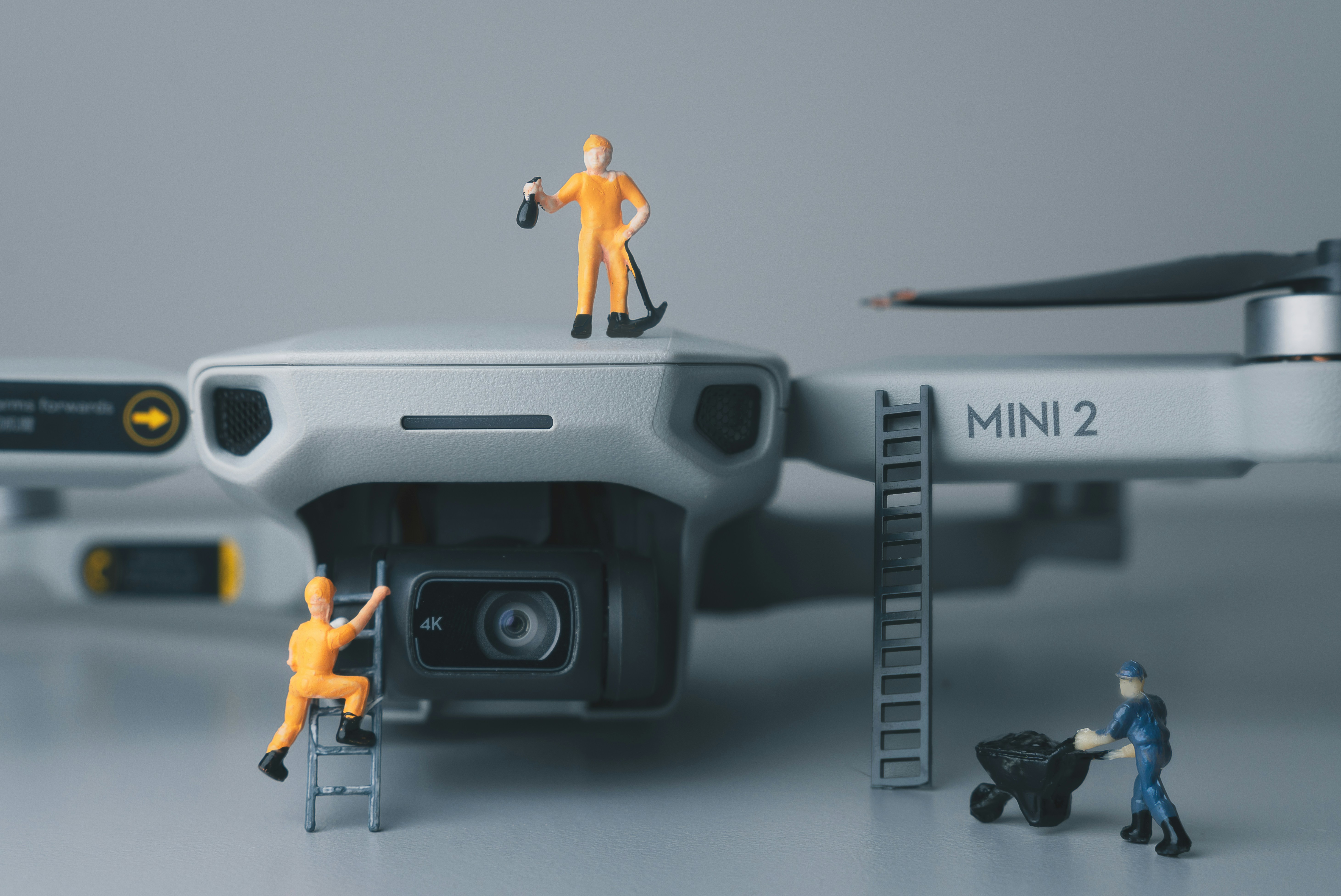
How to Present UAV Solutions to Non-Technical Audiences: A Public Speaking Guide for Job Seekers
Uncrewed Aerial Vehicles (UAVs), commonly known as drones, are revolutionising industries—from agriculture and infrastructure to emergency response and environmental monitoring. But as UAVs become more advanced, so does the need to clearly explain what they do, how they work, and why they matter to people outside the engineering world.
Whether you're applying for a UAV pilot role, drone software engineer position, regulatory consultant, or operations manager, your ability to present UAV technology and applications to non-technical audiences is a skill that UK employers are increasingly testing in interviews.
This guide will help you structure your presentation, simplify technical content, design clear visuals, and confidently respond to common stakeholder questions—so you can stand out in interviews and lead effectively on the job.
Why Communication Matters in UAV Careers
UAV professionals regularly work with:
Clients in construction, public safety, utilities, or agriculture
Local authorities and government departments
Insurance firms and risk assessors
Non-technical operations teams
The general public
These audiences often don’t know the difference between fixed-wing and multirotor drones, or what GNSS, BVLOS or RTK mean—but they’ll need to understand:
What your UAV system does
Why it’s useful or cost-effective
How it improves accuracy, speed, or safety
That it’s compliant with UK airspace regulations
In interviews and in the field, the ability to clearly explain your work is a key differentiator.
When This Skill is Tested
UK UAV job interviews may include:
A 5–10 minute presentation on a drone project
A simulation of a client consultation or stakeholder pitch
An explanation of UAV data workflows to a non-technical audience
A demo walk-through of a UAV platform
Questions about safety, legality, and practical applications
These exercises test not just your technical expertise, but your communication, commercial awareness, and stakeholder empathy.
Structuring Your UAV Presentation: The “F.L.I.G.H.T.” Framework
Use this six-step structure to clearly communicate any UAV solution:
F – Frame the Problem
Start with a clear challenge:
“Inspecting power lines manually is dangerous, time-consuming and requires shutting down infrastructure.”
Set the scene with operational or financial pain points.
L – Launch the Solution
Introduce your UAV solution in simple terms:
“We used a multirotor drone equipped with high-res visual and thermal cameras to safely inspect power lines from the air—without cutting power.”
Describe what the system does—not just the hardware or model.
I – Illustrate How It Works
Use a visual or brief walk-through of the process:
“The drone followed a pre-programmed flight path, capturing geotagged images. Data was uploaded via 4G for analysis the same day.”
G – Give the Results
Share clear, measurable benefits:
“Inspection time was reduced by 80%, risk exposure dropped to zero, and costs were cut by £12,000 per site.”
H – Highlight Safety & Compliance
Reassure on regulation:
“Flights were conducted under CAA operational authorisation, with remote ID and geofencing enabled, and a pre-flight risk assessment completed.”
T – Talk Future or Transferability
Show where else it applies:
“This approach can be scaled to inspect bridges, telecoms masts, and solar farms using the same UAV setup.”
Slide Design Tips for UAV Presentations
✅ Use Visuals Heavily
Aerial photos or sample outputs (thermal, LIDAR, RGB)
Flight path maps or coverage diagrams
Workflow illustrations (mission planning → data capture → analysis)
Avoid showing app screenshots or raw telemetry unless directly relevant.
✅ One Idea Per Slide
Keep slides clean and simple:
Use large fonts (24pt minimum)
Avoid paragraphs of text
Include captions beneath visuals
✅ Speak in Benefits
Replace:
“We used RTK GPS for 2cm accuracy.”
With:
“We delivered survey-grade accuracy without the need for ground control points.”
✅ Colour Code or Iconify
Blue = UAV data
Red = risk/hazard
Green = benefit or outcome
Icons for drones, sensors, buildings, people, etc.
Storytelling That Sticks
Use a “Mission Briefing” Style Story
Problem:
“Flooding damaged roads across a rural region—access for repairs was limited.”
Solution:
“We deployed UAVs to survey damage, generate maps, and prioritise response.”
Result:
“Engineers used our data to reopen 80% of affected roads within 3 days.”
Keep it action-oriented and visual.
Use Analogies Sparingly
BVLOS = Like a pilot flying a plane with radar and remote control
Photogrammetry = Like stitching together hundreds of photos into a single 3D model
LiDAR = Like shining millions of lasers to build a precise 3D map
Analogies help—but don’t overuse them.
Humanise the Impact
Talk about who benefits:
Surveyors save days of walking
Emergency teams get instant insights
Farmers optimise crops from the sky
Councils avoid closures with aerial inspections
Make the tech serve people—not the other way around.
Handling Common Non-Technical Questions
You may be asked:
“Can this drone fly near homes or roads?”
“Is this legal under CAA rules?”
“How do we know the data is accurate?”
“What happens if the drone crashes?”
“Will this replace humans?”
How to Respond Confidently
✅ Reassure on Regulation
“We operated under an Operational Authorisation with permissions for flights near people, and followed all CAA guidelines.”
✅ Emphasise Redundancy
“Our drone has obstacle detection, GPS failover, and auto-return-to-home in case of signal loss.”
✅ Highlight Data Quality
“We used RTK corrections and verified results against known ground markers to ensure accuracy.”
✅ Position as Supportive Tech
“The UAV complements human expertise. It reduces risk and saves time, but analysis and decisions are still made by people.”
Practising for a UAV Job Interview
✅ Rehearse With a Non-Drone Person
Ask a friend or family member:
“What did you understand?”
“What confused you?”
“What questions do you still have?”
✅ Record Your Pitch
Play it back to check for:
Use of jargon (BVLOS, GSD, PPK, etc.)
Slide clarity
Voice speed and confidence
Logical flow and outcome focus
✅ Use the 90-Second Summary Test
Can you explain your UAV project in 90 seconds, without jargon, to a complete beginner?
If not, keep simplifying until you can.
What Interviewers Want to See
UK employers hiring UAV professionals are looking for:
Technical credibility + communication clarity
Understanding of regulations and risk
Ability to explain UAV data value
Confidence in presenting results
Empathy for user or client concerns
These are critical in both field and office-based UAV roles—especially where public perception, legal risk, or stakeholder buy-in is involved.
Real UK Interview Examples
🔹 UAV Pilot – Surveying Company
“Walk us through a job where you planned and executed a drone survey.”
Tip: Focus on airspace, safety, workflow and client benefit.
🔹 Graduate UAV Data Analyst
“Explain your drone data output to a town planning team.”
Tip: Show maps, talk outcomes, avoid drone specs unless asked.
🔹 Drone Operations Lead – Public Sector
“Pitch a new drone use case to a council manager worried about cost and privacy.”
Tip: Emphasise compliance, time savings and public benefit.
Common Mistakes to Avoid
❌ Starting With Drone Specs
Start with the problem—not the payload or flight time.
❌ Using Too Many Acronyms
BVLOS, GSD, PPK, RTK, EASA—explain them, or avoid them.
❌ Ignoring Safety and Regulation
Even if it’s obvious to you, always confirm your flight was compliant and risk-managed.
❌ Forgetting ROI
Explain how UAVs save time, reduce cost, or improve results—not just how cool the tech is.
Final Presentation Tips
Use voice modulation—avoid monotone delivery
Speak clearly and pause after each key message
End with your 3 key takeaways (problem, solution, impact)
Be ready to answer the “So what?” at any time
Smile—enthusiasm matters
Soft Skills You’ll Build
Mastering this communication style enhances:
Client trust and credibility
Team leadership potential
Sales-readiness and funding pitches
Regulatory understanding
Cross-functional collaboration
These are essential for thriving in any UAV career path.
Conclusion: Fly High, Speak Clearly
UAVs are powerful tools—but they only create real-world impact when people understand and trust them.
By learning to present drone solutions clearly, confidently and compliantly, you’ll increase your value to employers and clients—and take your career to new heights.
Ready to Launch Your UAV Career?
Find the latest UAV jobs in surveying, inspection, operations and data analysis at www.uavjobs.co.uk, where technical skill meets clear communication.
Plan smart. Fly safe. Speak with impact.


